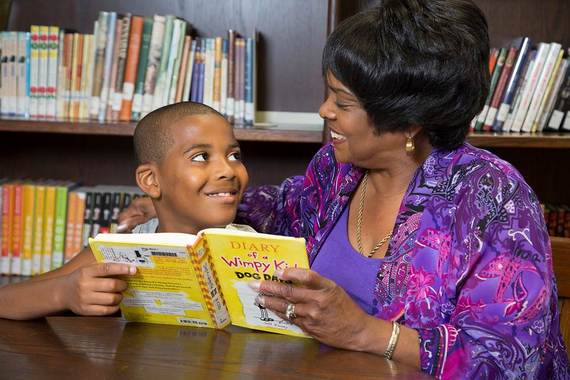Words of Hope
By Kelly Medinger
08-30-2016
Dyslexia Tutoring Program uses education grant to help low-income children learn to read
 “One of the things we always say is, ‘If you can’t read, you can’t do anything,’” states Marcy K. Kolodny, CEO of the Dyslexia Tutoring Program. “Many times children come to us in the third grade and have already started to lose their self-esteem simply because they can’t read.”
“One of the things we always say is, ‘If you can’t read, you can’t do anything,’” states Marcy K. Kolodny, CEO of the Dyslexia Tutoring Program. “Many times children come to us in the third grade and have already started to lose their self-esteem simply because they can’t read.”
An estimated 15-20% of the population is dyslexic or has a language-based learning disability (International Dyslexia Association). Couple that statistic with the fact that only half of all third graders in Baltimore can read at grade level, and the need to intervene becomes clear.
About DTP
Dyslexia Tutoring Program (DTP) was founded in 1982 by a group of concerned citizens who sought to demonstrate that with a small investment of time and energy, the chain of dyslexia could be broken.
DTP works with approximately 200 children and adults in Baltimore and surrounding counties who are dyslexic or have a language-based learning disability and can’t afford private tutoring. DTP’s volunteer tutors are trained in the 22-hour Orton-Gillingham method of teaching reading, writing, and spelling. They come from a variety of backgrounds including lawyers, teachers, stay-at-home moms, retired men and women, and business people. And they all want to give something back to their communities.
“As far as we know, we’re one of the only organizations in the country to provide these services free of charge,” Kolodny says. Private tutoring can cost between $70 and $100 an hour, far out of reach for students and their families.
Providing Opportunity and Hope
“A lot of our students are very bright. It’s just that they can’t read,” Bob Morton, Program Director, says. To learn to read, a student meets with his or her DTP tutor for one hour at least once a week. DTP then re-screens the student after every 30 hours of tutoring to measure improvement in areas such as word identification, word attack, spelling, fluency, and comprehension.
While assessments and scores can show a student’s improvement throughout the school year, the greater impact comes later and is perhaps more difficult to measure: “By increasing a student’s reading ability, research says you increase his or her self-esteem, develop character, and create skills needed for future success in high school, college, vocational school, the workplace, and other life endeavors,” says Kolodny.
Ten of DTP’s students are now in college, and three just graduated. Of the five DTP students who finished high school this year, all of them plan to attend college.
One of the program’s students, Tavon, called one day to ask if Kolodny could help him get a part-time job. The Marriott Waterfront Hotel offered him a job as a busboy. He then became a waiter and was accepted into their management training program, where he soon became a Captain, and last summer was promoted to Assistant Manager of the Catering and Events Department. “If it were not for DTP,” he says, “this would never have happened.”
